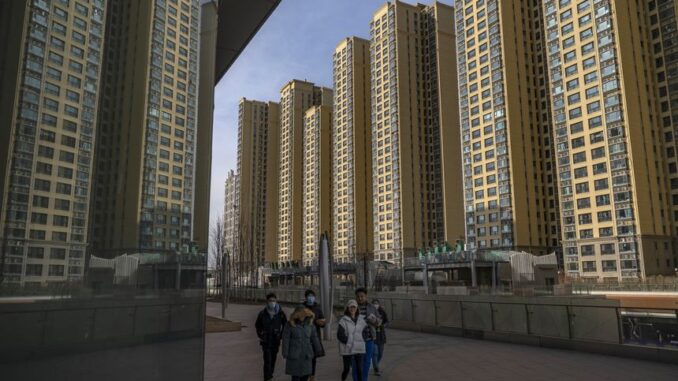
Discounted prices and government support are starting to restore appetite among foreign investors for real estate assets in China, analysts tell fDi. Asia Pacific investors already appear willing to go bargain hunting as the country’s ailing property market tries to stage a comeback, while US and European investors, swayed by geopolitical tensions, remain cautious.
On 20 February, Chinese regulators announced a pilot programme that encourages overseas institutional investors to create fixed-asset funds to invest in commercial, industrial and residential real estate.
The measures form part of the Communist Party’s broader post-Covid economic re-opening. “The recent messaging that came directly from pesident Xi [Jinping] and the standing committee is that China’s economic development remains the number-one priority — that has helped soothe foreign investors’ worries,” says Sheldon Chan, portfolio manager for Asia credit bond strategy at T Rowe Price.
The recent messaging that came directly from president Xi [Jinping] and the standing committee is that China’s economic development remains the number-one priority — that has helped soothe foreign investors’ worries.
China’s property sector overheated in the years preceding the Covid-19 pandemic, with major developers taking on unsustainable levels of debt to fuel the property frenzy further. The 2021 defaulting of Evergrande, one of the country’s largest property developers, sank the whole sector into a liquidity squeeze that continues to this day.
Investment into China’s property market thus nosedived throughout 2022. Overall, it fell by 10% from a year earlier, according to figures from the country’s national bureaus of statistics. This is the first time property investment recorded an annual decline since records began in 2019.
The value of retail and office assets in tier-1 cities has dropped by 15–20% since 2018, according to data by US-based commercial real estate services firm CBRE.
Beijing is now trying to breathe new life into the sector with a flurry of measures aimed to reignite investment and support homebuyers. “We are starting to see investor sentiment gradually improve based on attractive asset prices, a shift from zero-Covid policy, low lending cost and cyclical recovery of leasing demand,” says Henry Chin, global head of investor thought leadership, Asia Pacific at CBRE.
“Currently, the most active investors into China are Asia–Pacific investors,” Mr Chin tells fDi. “European and American investors have remained more cautious due to intensifying geopolitical risk over the past 12 months.”
Jason Liu, head of the chief investment office for Asia Pacific at Deutsche Bank tells fDi that while investor sentiment has improved, it might take a while for it to return to pre-pandemic levels.
Singaporean investors were the most active investors in the Chinese property market in 2021 and 2022, when they injected more than $9bn in capital, according to MSCI data.
Last month, CapitaLand, Singapore’s government-backed property portfolio manager, launched two Chinese property-focused investment funds worth $1.1bn.
“We expect interest to pick up significantly in the second half of 2023,” says Simon Treacy, CEO of private equity real estate, at CapitaLand Investments. “By deploying capital now when there is less competition, investors can potentially receive relatively strong forecasted returns and buy below replacement costs.”
Betting on a strong sector rebound, CapitaLand’s fund will invest in special situation opportunities in the commercial and new economy real estate sectors such as office, retail and logistics.
Source: www.fdiintelligence.com



